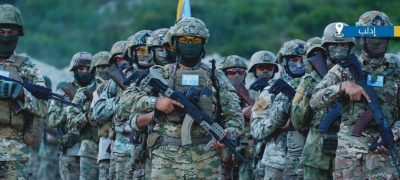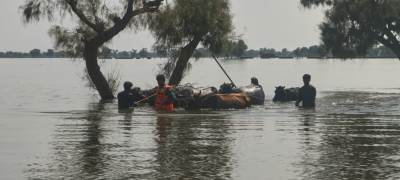Islamabad—A recent proposal to impose an additional Rs. 50 federal duty on every cigarette pack to generate funds for flood rehabilitation has triggered concern from industry representatives, who warn that such a measure could cripple Pakistan’s legal cigarette sector while doing little to boost revenues.
Muhammad Ameen, Chairman of Fair Trade in Tobacco (FTT), speaking to journalists in Islamabad, said the government must be praised for its resolve in guiding the economy through challenges and for the Federal Board of Revenue’s (FBR) progress on enforcement. “Prime Minister Shehbaz Sharif has shown leadership in strengthening the economy, and the FBR deserves full credit for its recent clampdowns,” he said. “However, this proposed levy would harm the very sector that is already complying with the law, while the illegal cigarette mafia will simply continue its tax-free trade.”
The concern arises against the backdrop of stark findings from a February 2025 compliance study conducted by the Institute for Public Opinion Research (IPOR).
Out of 413 cigarette brands surveyed nationwide, only 19 were found fully compliant with the government’s Track and Trace system, Graphical Health Warnings, and Minimum Legal Price of Rs. 162.25 per pack. An alarming 394 brands were categorized as non-compliant, including 286 smuggled brands and 95 locally manufactured duty-not-paid products. Many of these sell openly for as low as Rs. 40 per pack, a fraction of the legal minimum price.
“These figures reveal a market already dominated by non-tax-paid brands,” Ameen said. “When legal companies with just 44 percent market share are paying nearly the entire tax contribution, adding another Rs. 50 per pack will only shrink their sales further. Meanwhile, the illegal sector, which already causes nearly Rs. 400 billion in annual tax losses, will not contribute a single rupee to flood rehabilitation.”
According to Ameen, the smuggling networks are not only widespread but increasingly brazen.
He highlighted reports of smugglers based in Balochistan using closed WhatsApp groups and other social media platforms to advertise and sell their products. “Instead of burdening compliant taxpayers, the government should be clamping down on these smugglers who openly promote their illegal trade online,” he urged. “Every illegal pack sold is a direct theft from Pakistan’s treasury and from the nation’s ability to fund critical needs like flood recovery.”
The IPOR study further reveals that in both rural and urban markets, non-compliant cigarettes outsell compliant brands, with 58 percent of rural sales and 49 percent of urban sales dominated by illegal products. Such trends have already eroded the legal industry’s market share, forcing job cuts and discouraging further investment.
“The legal sector is being strangled by unfair competition,” Ameen said. “Factories are losing sales, farmers risk losing contracts, and Pakistan’s revenue base is collapsing. We must not punish the compliant companies and workers who follow the law. We should target those who mock the law.”
Ameen also emphasized that flood rehabilitation is a national priority, but stressed that sustainable revenue must come from strengthening enforcement rather than punitive levies. “We stand shoulder to shoulder with the government in its mission to rebuild after the floods,” he said. “But the right way to raise funds is by enforcing the existing laws. Suppose the state ensures full compliance with the Track and Trace system, clamps down on smuggling routes, and penalizes retailers of illegal cigarettes. In that case, it can generate hundreds of billions without breaking the back of legal taxpayers.”
He urged continuity in the FBR’s enforcement drive, which, in recent months, has conducted several successful raids against illegal manufacturers and retailers. “The Prime Minister and FBR have set the right tone with their enforcement,” Ameen said. “Now it must be consistent, relentless, and year-round. Only then will Pakistan reclaim the revenue that illegal operators are looting.”
As Pakistan seeks to recover from devastating floods while also tackling its fiscal deficit, the debate over cigarette taxation underscores a broader challenge: balancing urgent resource needs with sustainable economic policy. Industry experts and FTT argue that without decisive action against smugglers and illegal traders, any new tax burden will simply accelerate the shift from legal to illegal cigarettes—leaving the state with neither revenue nor compliance.
Also read: Is East Turkistan Islamic Movement the Next Big Security Threat for Pakistan?









